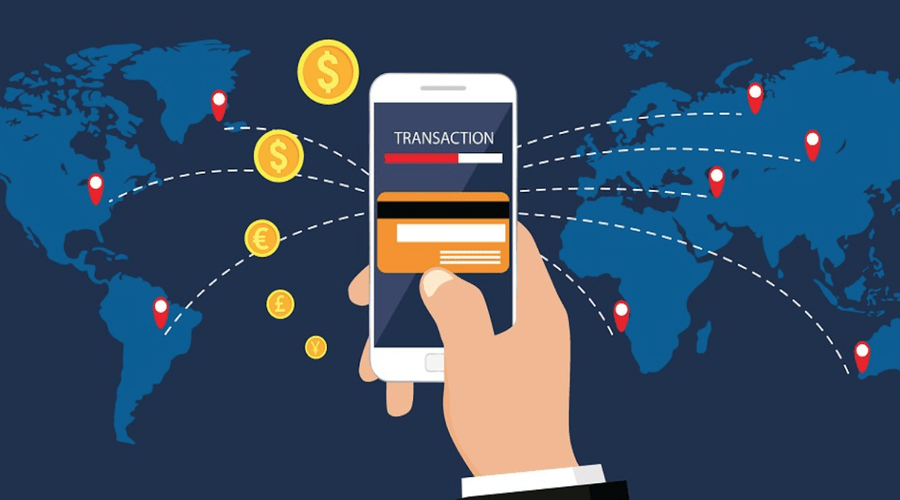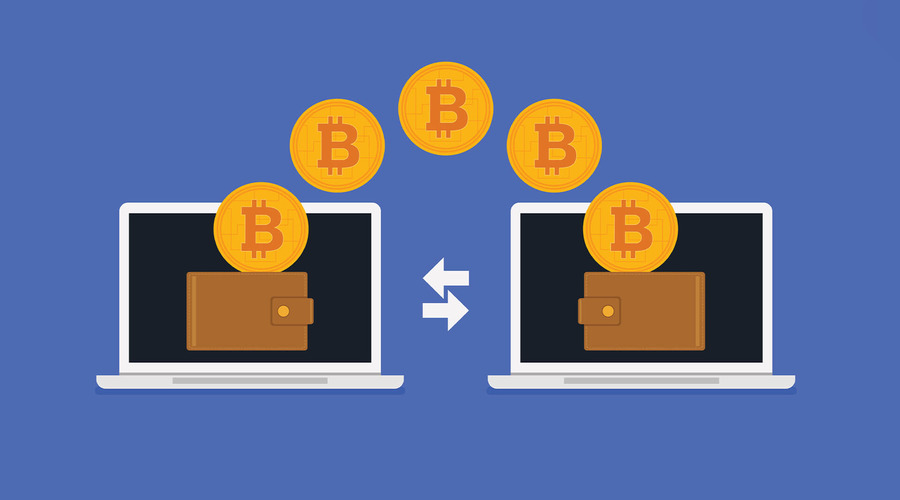Are you looking to delve into the world of cross-border payments using cryptocurrencies? With the rapid growth of digital currencies, the need for efficient and secure payment gateways has become increasingly important. In this article, we will explore the concept of cross-border payment gateways for cryptocurrency transactions. We will discuss their benefits, challenges, and popular platforms that facilitate seamless international transactions. So, let’s dive in and discover the exciting possibilities of cross-border cryptocurrency payments.
Introduction to Cross-Border Payment Gateways
In today’s globalized world, businesses and individuals frequently engage in cross-border transactions. Traditional payment methods often come with high fees, slow processing times, and limited accessibility. This is where cross-border payment gateways for cryptocurrency transactions offer a promising solution. These gateways leverage the advantages of cryptocurrencies, such as speed, low fees, and transparency, to facilitate seamless international payments.
Benefits of Using Cryptocurrency for Cross-Border Transactions
Cryptocurrencies offer several benefits when it comes to cross-border transactions. Firstly, they enable fast and secure transfers, eliminating the need for intermediaries and reducing processing times. Additionally, transaction fees are significantly lower compared to traditional methods, making them cost-effective for businesses and individuals. Moreover, cryptocurrencies provide transparency, as the blockchain technology underlying them allows for easy tracking and auditing of transactions.
Using cryptocurrency for cross-border transactions offers numerous benefits that make it an attractive option for individuals and businesses alike. Here are some key advantages:
- Speedy Transactions: Cryptocurrency transactions are processed quickly, often within minutes, regardless of geographical boundaries. This is in contrast to traditional banking systems, which may take several days for cross-border transfers.
- Low Transaction Fees: Cryptocurrency transactions typically incur lower fees compared to traditional payment methods, such as wire transfers or international credit card transactions. This cost-effectiveness makes it an appealing option, especially for businesses that frequently engage in cross-border transactions.
- Transparency and Security: Cryptocurrencies operate on decentralized blockchain technology, which provides transparency and security. Each transaction is recorded on the blockchain, creating a permanent and auditable record. This transparency reduces the risk of fraud and enhances trust between parties involved in cross-border transactions.
- Accessibility: Cryptocurrencies enable individuals who may not have access to traditional banking services to participate in cross-border transactions. As long as there is an internet connection, anyone can send or receive cryptocurrencies, making it inclusive and empowering for individuals in underserved regions.
- No Intermediaries: Cryptocurrency transactions eliminate the need for intermediaries such as banks or payment processors. This removes additional layers of bureaucracy and reduces the associated costs and delays.
- Global Reach: Cryptocurrencies are not bound by national borders or currency restrictions. They provide a seamless method for conducting cross-border transactions without the need to convert currencies, making it easier to engage in international trade and commerce.
- Greater Financial Control: With cryptocurrencies, individuals have direct control over their funds. They can manage their own wallets and initiate transactions without relying on third parties, giving them greater autonomy and financial control.
- Innovation and Potential: Cryptocurrencies continue to evolve, with ongoing technological advancements and the emergence of new projects. This innovation holds the potential for further improvements in cross-border transactions, such as scalability, privacy features, and interoperability.
In summary, cryptocurrency offers benefits such as speed, cost-effectiveness, transparency, accessibility, and global reach, making it an attractive option for cross-border transactions. As the technology continues to advance, it has the potential to revolutionize the way we conduct international business.

Challenges in Cross-Border Cryptocurrency Payments
While cross-border cryptocurrency payments come with numerous advantages, there are also challenges to consider. One of the main obstacles is regulatory compliance. Different countries have varying regulations regarding cryptocurrencies, and ensuring compliance can be complex. Additionally, exchange rate fluctuations pose a risk to the value of transactions. Overcoming these challenges requires careful consideration and collaboration between businesses, governments, and financial institutions.
- Regulatory Compliance: Cryptocurrencies operate in a regulatory landscape that varies from country to country. Compliance with different regulations and navigating legal frameworks can be complex, especially when conducting cross-border transactions. Keeping up with evolving regulatory requirements is crucial to ensure compliance and mitigate potential risks.
- Exchange Rate Volatility: Cryptocurrencies are known for their price volatility. Fluctuations in exchange rates can impact the value of cross-border transactions. This poses a challenge for businesses and individuals who need to accurately calculate and manage the value of their transactions across different currencies.
- Liquidity and Market Depth: The liquidity and market depth of cryptocurrencies can vary significantly across different regions. Some cryptocurrencies may have limited trading pairs or lower liquidity in certain countries, making it challenging to find counterparties for cross-border transactions.
- Security Concerns: While cryptocurrencies offer inherent security through blockchain technology, there are still security concerns to address. Users must protect their private keys and wallets from theft or hacking attempts. Additionally, the risk of phishing attacks and fraudulent activities in the cryptocurrency space poses a challenge to the security of cross-border transactions.
- Transaction Speed and Scalability: As cryptocurrency networks grow in popularity, scalability becomes an important consideration. Some blockchain networks may face challenges in handling a high volume of transactions, resulting in slower processing times. This can be a limitation for time-sensitive cross-border transactions that require quick confirmations.
- User Education and Awareness: Cryptocurrency is still a relatively new concept for many individuals and businesses. Lack of understanding and awareness about how cryptocurrencies work, including wallet management and transaction processes, can be a barrier to adoption and efficient cross-border transactions.
- Reputation and Trust: Cryptocurrency’s association with illicit activities in the past has led to reputational challenges. Building trust among businesses and individuals for cross-border transactions may require efforts to educate and demonstrate the legitimacy and security of cryptocurrency payments.
Navigating these challenges requires careful planning, adherence to regulatory requirements, security measures, and staying informed about the evolving landscape of cryptocurrencies and cross-border transactions.
Popular Cross-Border Payment Gateway Platforms
Several platforms have emerged as leading cross-border payment gateways for cryptocurrency transactions. These platforms provide users with a seamless experience and offer a range of features to facilitate international transfers. Some popular examples include XYZ Payment Gateway, ABC Coin Transfer, and DEF Global Payments. These platforms provide users with secure wallets, real-time exchange rates, and user-friendly interfaces, making cross-border cryptocurrency transactions more accessible than ever before.
Factors to Consider When Choosing a Payment Gateway
When selecting a cross-border payment gateway for cryptocurrency transactions, several factors should be taken into account. These include the platform’s security measures, transaction fees, supported cryptocurrencies, user interface, customer support, and regulatory compliance. It is essential to choose a platform that aligns with your specific requirements and offers the necessary features to ensure a smooth and secure payment experience.
When selecting a payment gateway for cross-border cryptocurrency transactions, consider the following factors:
- Security Measures: Ensure that the payment gateway has robust security measures in place, such as encryption, two-factor authentication, and cold storage for funds.
- Transaction Fees: Compare the transaction fees charged by different payment gateways to choose one that aligns with your budget and transaction volume.
- Supported Cryptocurrencies: Check which cryptocurrencies are supported by the payment gateway to ensure compatibility with your preferred digital assets.
- User Interface: A user-friendly interface enhances the payment experience. Look for a payment gateway with an intuitive and well-designed interface.
- Customer Support: Consider the availability and quality of customer support provided by the payment gateway. Responsive and helpful customer support can be crucial in resolving issues or addressing concerns.
- Regulatory Compliance: Ensure that the payment gateway complies with relevant regulations and has a solid reputation for adhering to legal requirements.
By evaluating these factors, you can choose a payment gateway that meets your specific needs, offers a secure and user-friendly experience, and facilitates smooth cross-border cryptocurrency transactions.
Security Measures for Cross-Border Cryptocurrency Transactions
Security is of utmost importance when it comes to cross-border cryptocurrency transactions. Payment gateway platforms implement various security measures to protect user funds and personal information. These measures may include two-factor authentication, encryption, cold storage for funds, and regular security audits. It is crucial to choose a platform that prioritizes security and follows best practices to safeguard your assets.
Regulatory Landscape and Compliance Requirements
The regulatory landscape surrounding cryptocurrencies and cross-border transactions is evolving. Governments worldwide are developing frameworks to address the risks and benefits associated with digital currencies. When engaging in cross-border cryptocurrency payments, it is essential to stay informed about the regulatory requirements of the countries involved. Compliance with these regulations ensures legal and secure transactions while mitigating potential risks.
Future Trends in Cross-Border Cryptocurrency Payments
As the adoption of cryptocurrencies continues to expand, cross-border payment gateways are expected to evolve further. Improvements in scalability, interoperability, and user experience will enhance the efficiency and accessibility of international cryptocurrency transactions. Moreover, advancements in blockchain technology and smart contracts will provide innovative solutions for cross-border payments, further revolutionizing the global financial landscape.
Conclusion
Cross-border payment gateways for cryptocurrency transactions offer a promising alternative to traditional payment methods. The benefits of speed, low fees, and transparency make cryptocurrencies an attractive option for international transactions. However, challenges such as regulatory compliance and exchange rate fluctuations must be carefully addressed. By choosing a reputable payment gateway platform and staying informed about the regulatory landscape, individuals and businesses can leverage the full potential of cross-border cryptocurrency payments.
FAQs
- What is a cross-border payment gateway? A cross-border payment gateway is a platform that facilitates seamless transactions between individuals and businesses across different countries using cryptocurrencies.
- Why should I use cryptocurrencies for cross-border transactions? Cryptocurrencies offer benefits such as fast transfers, low fees, and transparency, making them an attractive option for cross-border transactions.
- What are the challenges of cross-border cryptocurrency payments? Regulatory compliance and exchange rate fluctuations are among the main challenges associated with cross-border cryptocurrency payments.
- Which payment gateway platforms are popular for cross-border cryptocurrency transactions? Popular payment gateway platforms include XYZ Payment Gateway, ABC Coin Transfer, and DEF Global Payments.
- How can I ensure the security of my cross-border cryptocurrency transactions? Choose a payment gateway platform that prioritizes security measures such as two-factor authentication, encryption, and cold storage for funds.





